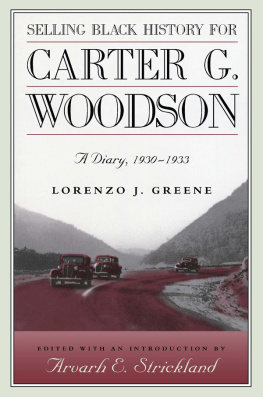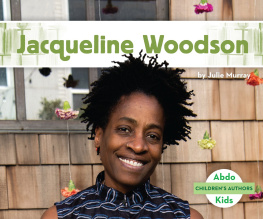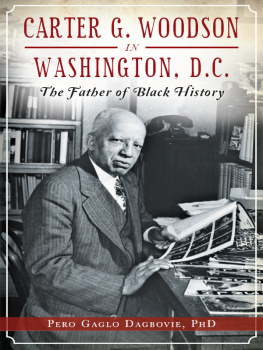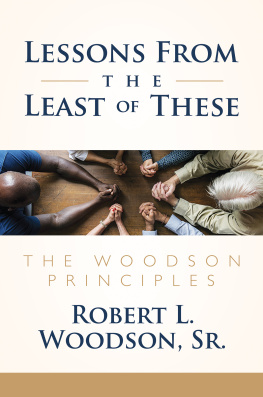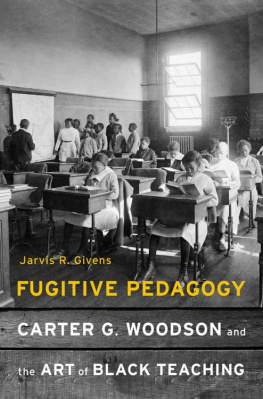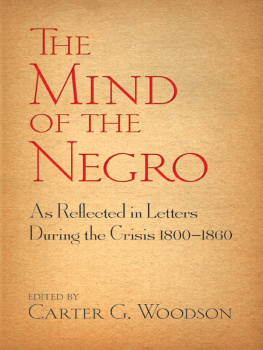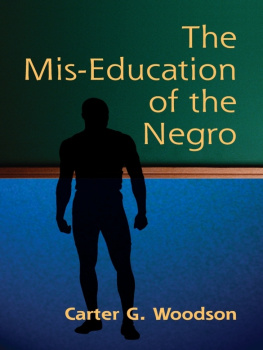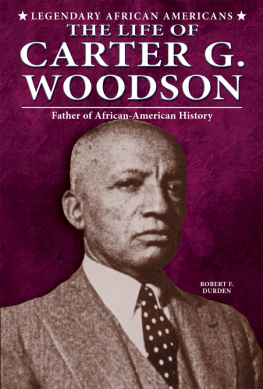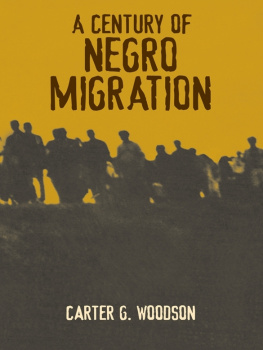CARTER G. WOODSONRACE, RHETORIC, AND MEDIA SERIES
Davis W. Houck, General Editor
www.upress.state.ms.us
The University Press of Mississippi is a member of the Association of American University Presses.
Copyright 2017 by University Press of Mississippi
All rights reserved
Manufactured in the United States of America
First printing 2017
Library of Congress Cataloging-in-Publication Data
Names: Morris, Burnis Reginald.
Title: Carter G. Woodson : history, the Black press, and public relations /
Burnis R. Morris.
Description: Jackson : University Press of Mississippi, 2017. | Series: Race,
rhetoric, and media series | Includes bibliographical references and index.
Identifiers: LCCN 2017010442 (print) | LCCN 2017011103 (ebook) | ISBN
9781496814074 (cloth : alk. paper) | ISBN 9781496814081 (epub single)
| ISBN 9781496814098 (epub institutional) | ISBN 9781496814104 ( pdf
single) | ISBN 9781496814111 (pdf institutional)
Subjects: LCSH: Woodson, Carter Godwin, 18751950. | African American
historiansBiography. | HistoriansUnited StatesBiography. | African
AmericansHistoriography.
Classification: LCC E175.5.W65 M67 2017 (print) |
LCC E175.5.W65 (ebook) | DDC 973/.0496073007202 [B]dc23
LC record available at https://lccn.loc.gov/2017010442
British Library Cataloging-in-Publication Data available
CARTER G. WOODSONS ENABLERS IN THE BLACK PRESS, WHO PROVIDED HIM AN UNHERALDED PLATFORM FOR TRUTH, AND ALAN B. GOULD, WHO KEPT THE MEMORY OF DR. WOODSON ALIVE IN WEST VIRGINIA
ACKNOWLEDGMENTS
THE GENEROSITY OF THREE ORGANIZATIONS SUPPORTED THE RESEARCH from which this book evolved: the John Deaver Drinko Academys selection of me as a Distinguished John Deaver Drinko Fellow; West Virginia Humanities Council, which awarded me a 2011 fellowship; and Emory Universitys Manuscript, Archives, and Rare Book Library, which selected me as its Carter G. Woodson Fellow in 2012.
I am also grateful to a crowded list of individual supporters led by historian Alan B. Gould, who was as helpful to me, a journalist, as I postulate journalists were to Dr. Carter G. Woodson, when the newspaper men and women of his day joined the historians cause and generously supported preservation of black history. To the present project, Gould provided equal amounts of enthusiasm, advice, and appropriate criticism. As executive director of the Drinko Academy, Gould not only delivered the Academys resources to my project, but for more than three decades he also played a facilitators role in attempts to keep alive the Woodson connections to Huntington, West Virginia, when he was a dean and provost at Marshall University. He served as an early champion of the committee that preserved Woodsons likeness with a statue there in 1995.
Strong support for this project also came from members and leaders of the Association for the Study of African American Life and History, whose stewardship helped this group, which Woodson founded, reach an impressive milestoneits centennial (19152015) and beyond, in large measure as its demanding founder had intended.
I also acknowledge several Woodson relatives who provided insights and documentation about the Woodson family, including his great-nephew Nelson Bickley and his wife, Ancella, as well as Adrienne Cannon, a distant cousin and African American History and Culture manuscript specialist at the Library of Congress.
Kristin Steele, my former graduate assistant, worked tirelessly on this projects behalf, and my colleagues Charles G. Bailey and Rob Rabe were uncomplaining as sounding boards. For inspiration, I also cite the support of two of my former students, Kayla Queen and Kyle Dyer, who announced their wedding plans to each other using Woodson postage stamps from the 1980s.
Kathleen Bledsoe and other members of the Special Collections staff at the Marshall University Libraries maintained a shelf in my name behind the service desk for several years, and library boss Monica Brooks invented creative ways to circumvent the many obstacles to research during an age of declining library resources.
Andrew Salinas and his colleagues at the Amistad Research Center at Tulane University were not only well prepared for my visit to their campus, but their request for a copy of the newspaper I founded for black students at Ole Miss in the 1970s made Woodsons admonishmentto black editors to preserve copies of their worka personal issue.
Others who should be identified by name for their support include: Tewodros Abebe, Moorland-Spingarn Research Center, Howard University; Francine Archer, Special Collections and Archives, Johnston Memorial Library, Virginia State University; Emma Barnett, widow of a Woodson cousin; Randall Burkett, African American Collections, Emory Universitys Manuscripts, Archives, and Rare Book Library; Sylvia Cyrus, Association for the Study of African American Life and History; Beverly Cook, Vivian G. Harsh Research Collection of Afro-American History and Literature, Carter G. Woodson Regional Library in Chicago; Cicero Fain, College of Southern Maryland; Kenneth Hart, businessman, Norfolk, Virginia; Willie James Maiden, architect, Washington, DC; Carmen Manning-Miller, professor and former chair of mass communications, Lincoln University of Pennsylvania; Daryl Michael Scott, Howard University, and former president, Association for the Study of African American Life and History; Fleury Sommers, of Sommers and Associates, Houston, Texas; and my extended family at Marshall UniversityGeorge Arnold, Woodrow Berry, Nathaniel DeBruin, Renee Denney, Corley Dennison III, Janet Dooley, Terry Hapney, David Harris, Frances Hensley, Dan Hollis, Andre Jones, Josh Lycans, Newatha Meyers, Gayle Ormiston, Jessica Patterson, Don Van Horn, Malcolm Walton, and Sandy York.
I would be remiss if I did not express appreciation to the University Press of Mississippi and Craig Gill, who immediately understood the importance of publishing a book about an overlooked perspective of Carter G. Woodsons worka side of him that set the stories of black contributions on a path of acceptance by most Americans as HISTORY. I also thank copy editor Robert Burchfield for his contributions and thoroughness.
PREFACE
THE IDEA FOR THIS EXAMINATION OF DR. CARTER G. WOODSONS USE OF the press and public relations to preserve and promote an accurate record of history evolved by happenstance from a visit to the Underground Railroad Freedom Center in Cincinnati, Ohio, on the national holiday honoring the Rev. Martin Luther King Jr., January 17, 2011. While browsing the museums gift shop, I purchased a copy of The Mis-Education of the Negro, Woodsons best-known book, first published in 1933 and not read by me for several years. It remains, personally, a riveting page-turner after all these years.
The study that evolved after my exit through the gift shop reveals the details and significance of what Woodson hinted at in passing in the foreword to Mis-Educationwhich I, and probably countless other readers, did not comprehend previously. Woodsons brief statement mentioned that the book was based on ideas he had recently expressed in speeches and articles. However, he did not expressly state in that books foreword that the articles were published in black newspapers or that the newspapers were essential to the build-up of publicity before publication of




